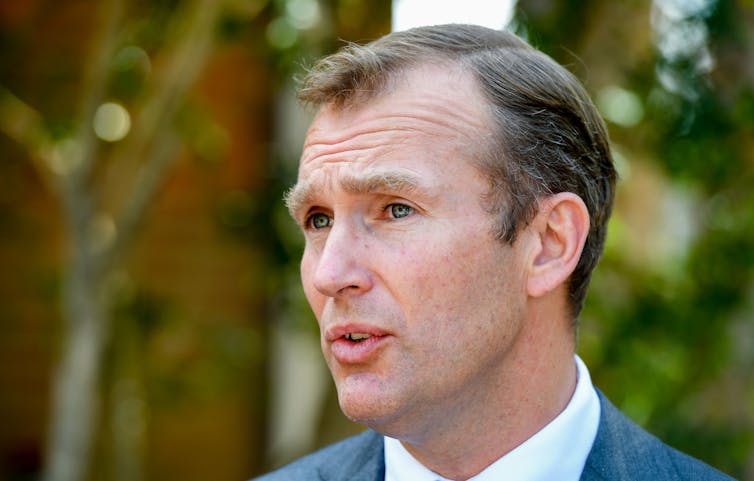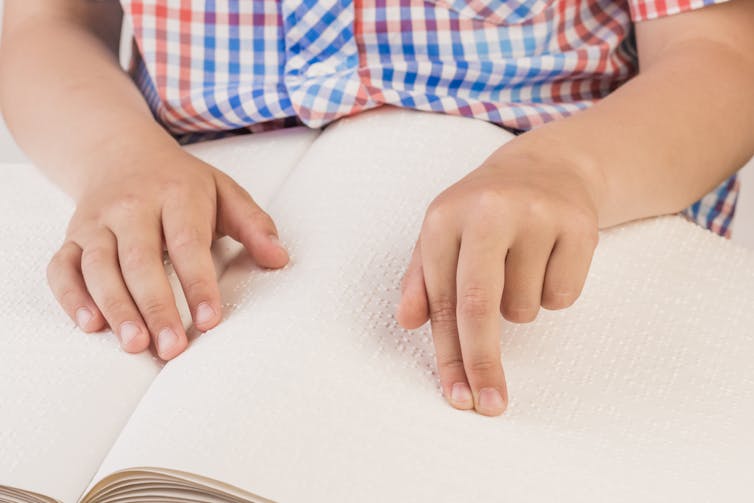NSW could lead the way in educating students with a disability
- Written by David Roy, Lecturer in Education, University of Newcastle
For the last few years, across Australia, there have been a growing number of concerns of the provision of education for children with a disability. After representation to the NSW Parliament from parents, teachers and academics presenting evidence of discrimination and abuse, an inquiry was initiated in 2016.
This March, the NSW minister of education is due to release his response to the New South Wales parliamentary inquiry in to the education of children with a disability or special needs. There is the potential for significant changes in the way the education of children with a “label” will experience learning.
All schools, teachers, parents, and executives may be be impacted as the NSW changes would lead best practice for all states and territories. While other states have had recent smaller inquiries, the breadth and depth of the NSW inquiry was across all systems in the state, with 427 submissions and seven days of hearings.
Funding is an issue, but not the solution
Out of 38 recommendations, ten had a direct impact on funding issues.
 New South Wales Education Minister Rob Stokes.
Aap/Brendan Esposito
New South Wales Education Minister Rob Stokes.
Aap/Brendan Esposito
The report highlighted strengths in the system, such as teachers who support children with a disability, but recognised many staff in schools need significant additional training in how best to support children with a disability. To do so, funding must be made available for equipment, adaptations to classrooms and schools to allow access, as well as for staff release to be given meaningful, hands on training. The report criticised online units, which can appear superficial.
Inclusion not segregation
Inclusion in mainstream schooling has been recognised as the best form of education for all learners. The report recognised the need for support classes, as opposed to special units which are isolated “mini-schools” on a mainstream school premise. It was clear these should not be permanent placements that only increase segregation. Instead, all learners with needs, not just labels, should be offered support, whether in reading or in other learning.
Read more: Children with disability are being excluded from education
A key issue remains in the role of segregated settings, which are increasing in NSW as well as other states. The very first recommendation notes “a child is to be educated in an inclusive mainstream setting”.
Inclusion has been a major concern reflected in the 2016 federal senate report and the recent reports from Victoria, South Australia and Queensland .
Attitudes need to change
Practically, we need to recognise full inclusion can only be achieved through a planned transition. You can’t just move children with specific needs into the mainstream without first changing attitudes and supporting staff, parents and children with training and resources, such as specialist equipment.
 Students with specific needs, such as children who are blind, may require additional resources, such as texts in Braille.
Shutterstock
Students with specific needs, such as children who are blind, may require additional resources, such as texts in Braille.
Shutterstock
Through understanding needs and seeing the potential of all children, attitudinal change, as recommended by two Senate inquiries, the auditor general and inquiries from every state and territory, is seen as key for fundamental change in this space.
Complaints and abuse allegations
Of equal concern in the report were the multiple allegations of abuse of children with a disability. The report stated the complaint system needs to be overhauled, but did not challenge the fact it’s done internally. Currently, the NSW Department of Education investigates itself, as do other the other states and territories. Both staff and parents are concerned they have a vested interest in their own self-preservation.
Read more: Report sparks concern about how schools support students with disabilities
The report has recommended, based on the NSW Ombudsman report report, there now needs to be an independent overseeing body to review to review the NSW Education Employee Performance and Conduct (EPAC) decisions and processes. Indeed, it might be beneficial for there to be an independent oversight body for all the states and territories to protect both children and staff.
Home schooling the only option available
Concern was raised that not all children with a disability are being offered access to the whole curriculum. This could be seen as a breach of state, national and international anti-discrimination laws.
There were many submissions and hearing testimonies stating children with a disability were also denied basic enrolment in their local public school. Many families are left with no other option than to home school their children. Homeschooling increased by 12% in 2017, compared to the 1.1% increase in public school enrolment.
Read more: Pauline Hanson is wrong – we need to include children with disability in regular classrooms
Moving forward
Overall, the issue which can have the greatest impact is leadership and attitudinal change. Funding, training and processes will not be successful solutions until those in leadership at school and system levels place the emphasis on every child’s ability to learn and feel safe, rather than protecting the system.
The inquiry’s purpose was to initiate changes to help the future for children, but it offers no healing or justice for the past. The challenge for the states and territories is to re-examine past issues and ensure families and children who have been discriminated against are re-engaged with meaningful and equitable support.
Fundamentally, it recommends mainstream schools must be inclusive for all children, similar to Finland, Italy, Scotland, and many other countries.
If the recommendations are adopted, staff must be supported with attitude and funding changes to support acceptance of children with a disability, training and staff be given additional preparation time. Allegations of abuse may be better dealt with, with potentially harsher penalties for those that abuse or cover up abuse. The recommendations aims are ultimately about children. To provide an equitable and safe education for all, particularly to some some of the most vulnerable and disadvantaged in our society.
NSW should accept all the recommendations and lead the way forward for best practice across all of Australia.
The author wishes to acknowledge the support and work of Caroline Dock of The University of Newcastle School of Education in the writing of this article.
Authors: David Roy, Lecturer in Education, University of Newcastle
Read more http://theconversation.com/nsw-could-lead-the-way-in-educating-students-with-a-disability-80812





